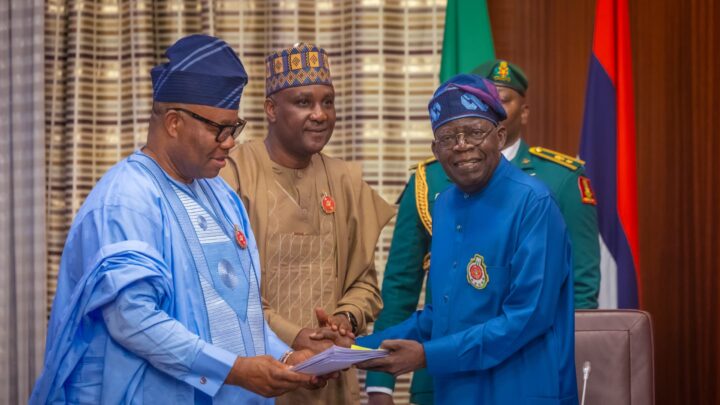
The National Assembly’s decision to allocate a staggering N197 billion to itself from Nigeria’s N28.7 trillion budget has ignited a firestorm of criticism and public outrage across the nation.
The move, seen as excessive and disproportionate, has drawn widespread condemnation from citizens.
Amid a budget meant to serve the needs of over 200 million Nigerians, the allocation to the National Assembly, comprising just 409 members, has raised eyebrows due to its sheer size.
The budget allocation for the legislature stands in stark contrast to the meagre N1.3 trillion earmarked for the entire health sector, highlighting what many consider skewed priorities.
The allocation, less than 5 per cent of the total budget, falls far below the agreed-upon 15 per cent allocation to the health sector set by African Union member states.
Similarly, it dwarfs the budget for education, a crucial sector that received N1.54 trillion, including provisions for the Students Loan scheme.
Critics have highlighted the disparities, pointing out that the National Assembly’s allocation exceeds federal universities’ and polytechnic budgets.
This comes at a time when underfunding in critical sectors like education and healthcare has already been a concern, with implications for the nation’s overall well-being.
The public outcry stems from a sense of disillusionment, as many Nigerians feel let down by what they perceive as self-serving actions by legislators.
The allocation to the National Assembly has intensified calls for a reevaluation of legislative priorities, with citizens demanding that the primary focus should be on serving the nation’s interests and addressing pressing societal needs rather than self-enrichment.
Speaking to Business Day on the issue, Augustine Anucha, a community leader in Abia State, said that awarding themselves the wealth of the country by arm-twisting the Executive puts the legislators on the same pedestal as those who “obtain by force.”
His words: “What is the difference between forcing someone to surrender one’s possession at gun point and what we are witnessing in government? Just because you can hold another arm of government to ransom does not give you the right to make demands that are illegitimate and nonsensical.
“If we call ourselves leaders, we must be leaders indeed. We must be reasonable and responsible. You do not arrogantly award yourself a salary that makes your fellow citizens begin to question their stake in the country.
“How do you justify the kind of money we hear the lawmakers allocated to themselves vis-a-vis the paltry N30,000 (thirty thousand naira) minimum wage? It is pure injustice.”
On his part, Bola Bolawole, a newspaper columnist, in his recently published article titled ‘When Nigerians lose interest in democracy, what next?’, marvelled at the brand of democracy that is being practised in Nigeria.
In his view, Nigeria has hit rock bottom since 1999, and he noted that the anger in the polity was palpable and could lead to something dreadful if the situation of things remained the same.
He said: “If we put the Fourth Republic, which began to run on May 29, 1999, on the utilitarian scale, what would the outcome be? 1999 to date has been the single longest stretch of, well, democratic experiment, that we have had in this country but has it translated into the delivery unto the people of the so-called dividends of democracy? What is the worth of a democracy that decreases, instead of increasing, the happiness and well-being of the citizenry?
“Mark my words: Nigerians are at the breaking point and need a change for the better. If our politicians keep standing in the way of peaceful revolution, they will make violent revolution inevitable (JF Kennedy). You will say I said so!”
